Original - Odaily
Edit - 0xAyA
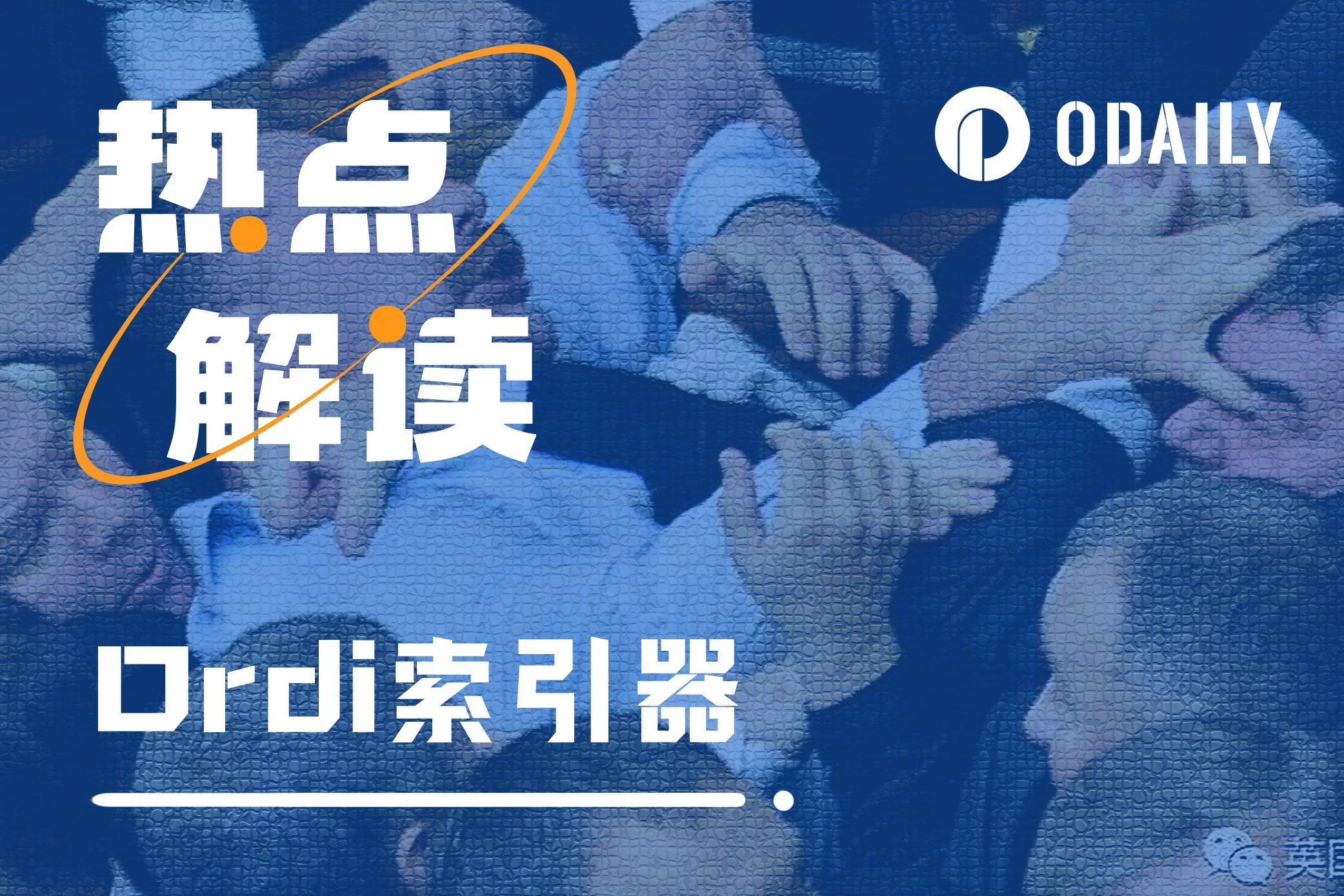
Today, the ORDI index issue is being widely discussed in the crypto community. Rumors once spread that ORDI will issue an additional 5 million units caused market panic. The ORDI token fell to 18.5 USDT in a short period of time, a drop of more than 12% in 24 hours. Following the subsequent announcement by UniSat, ORDI turned from falling to rising, rebounding to 20 USDT.
Odaily also sorted out this incident to help readers understand industry trends.
The incident started yesterday and is called@DumpsterDAOAn X platform user posted that due to an indexer problem, the number of ORDI held in the Binance wallet (bc1qhuv3dhpnm0wktasd3v0kt6e4aqfqsd0uhfdu7d) shows a difference of about 5 million pieces (about $100 million) on different indexers.
The news was also interpreted by the market as ORDI issuance of 5 million additional coins. The blogger later issued a clarification, stating that the total supply of ORDI is still 21 million, just because the balance displayed by the wallet is different; OKX and Bybit use UniSat as the index, while Binance uses Ordiscan as the index. The two data are inconsistent, which may Will expose ORDI to attack. To put it simply, the blogger believes that the data of the indexers applied on both sides are different, which may lead to asset bifurcation.
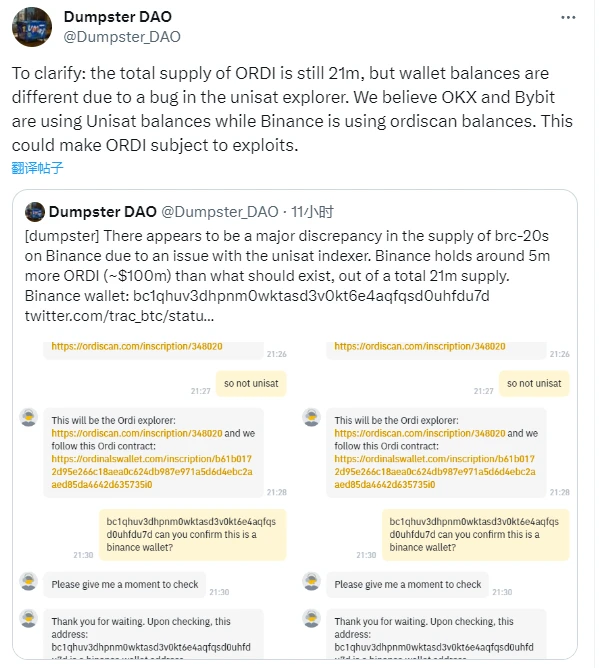 Then UniSat officially releasedstatement, indicating that the assets of this address have been verified on four different indexers and found that the ORDI balance data displayed by the three indexers (Unisat, OKX, Ordinalscan) are all consistent, both are 7,250,285.19634297, while inOrdiscanIt shows 2,304,693 on the indexer. Unisat believes there is a problem with the Ordiscan data and points out that Ordiscan has historically experienced some error conditions, such as not handling decimals well.Odaily analysis believes that Ordiscan may make a summation error when processing floating point number calculations, resulting in an incorrect final calculation result.
Then UniSat officially releasedstatement, indicating that the assets of this address have been verified on four different indexers and found that the ORDI balance data displayed by the three indexers (Unisat, OKX, Ordinalscan) are all consistent, both are 7,250,285.19634297, while inOrdiscanIt shows 2,304,693 on the indexer. Unisat believes there is a problem with the Ordiscan data and points out that Ordiscan has historically experienced some error conditions, such as not handling decimals well.Odaily analysis believes that Ordiscan may make a summation error when processing floating point number calculations, resulting in an incorrect final calculation result.
At the same time, UniSat also stated that its indexer is fully compatible with the latest BRC-20 standard, and the white module (white module) has not yet been activated, so it is actually impossible to have a fork, but UniSat will still provide source code and documentation as soon as possible. Actively help known indexers implement modular proposals.
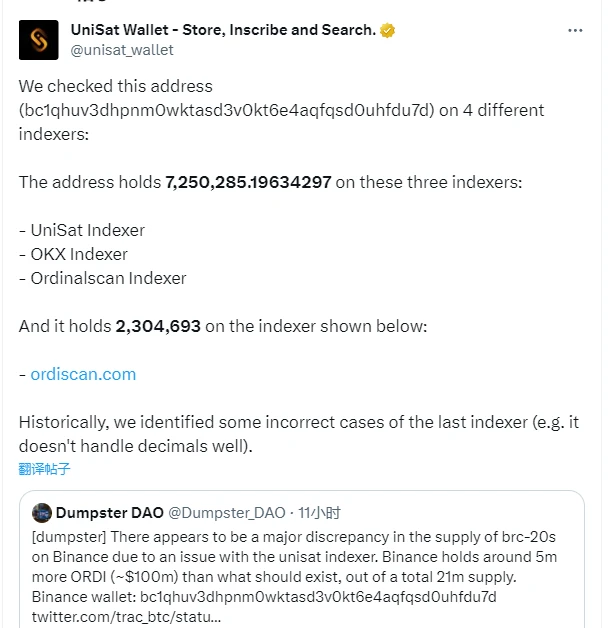
Binance officials also issued a statement responding to the ORDI index issue, saying that user funds are safe. Binance uses Unisat Indexer; the reason why Ordinalscan Indexer is different from Unisat Indexer is because the precision processing logic is different; funds are safe.
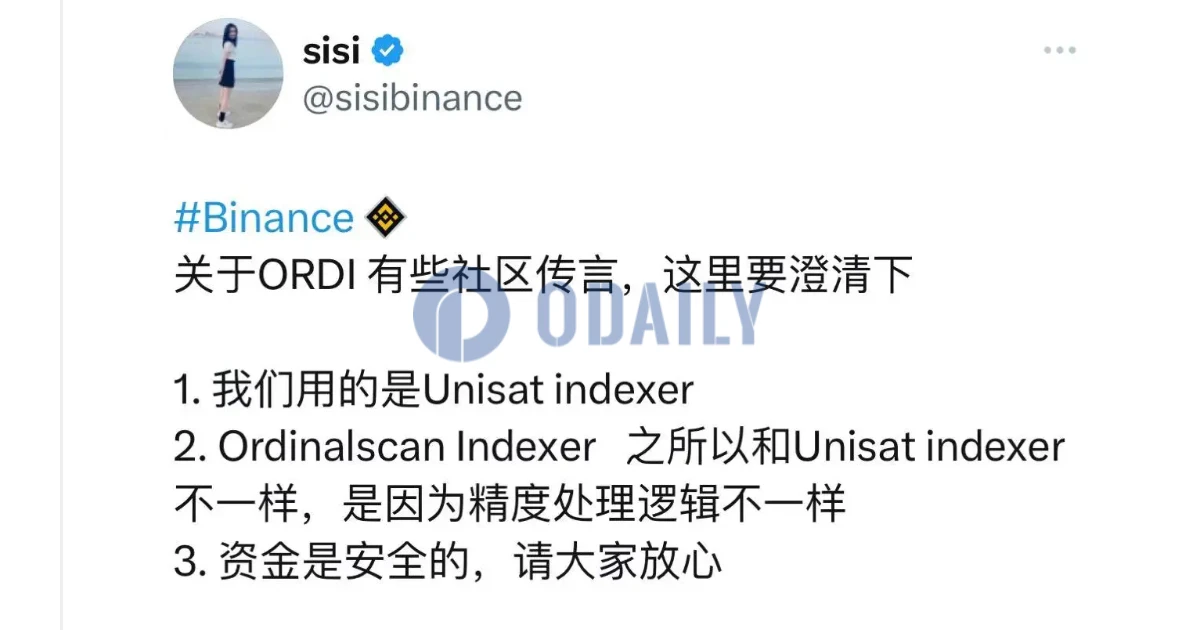
However, Binance also had two problems in its external feedback on this matter: First, Binance English customer service responded to the original blogger@DumpsterDAOWhen asking the question, it was mentioned that Binance ORDI usesOrdiscan index data (suspected data failure), rather than UniSat, which is more recognized by the community consensus, and the Chinese customer service said in responseConfirm that Unisat index data is used;Second, when the official statement was made,OrdiscanandOrdinalscanconfused, but in fact the two aredifferentindexer for Ordinalscan data with Unisatconsistent——From another perspective, as of now, the industry still does not know enough about the Bitcoin ecological infrastructure and tools, and is also unfamiliar with related terminology.
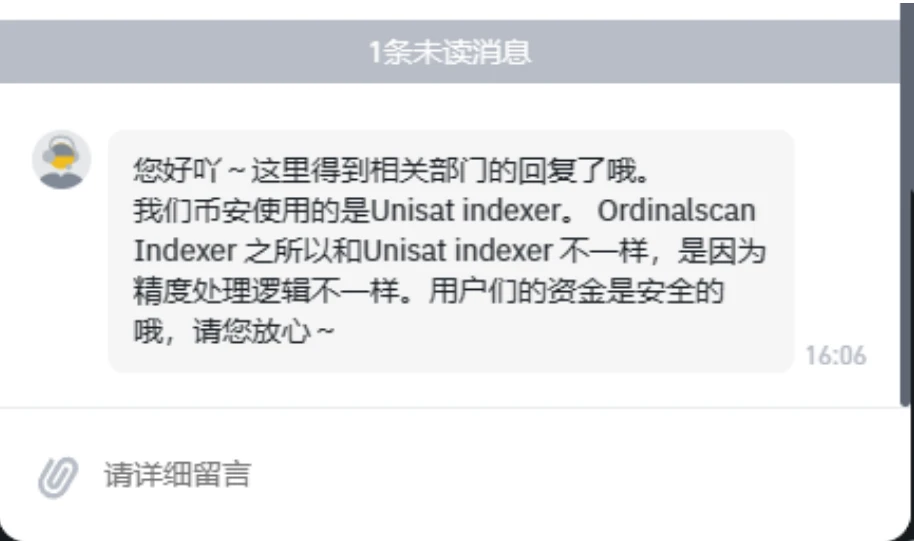
In fact, this is not the first time that controversy about indexers has occurred. Previously, Polygon’s Pols inscription had experienced indexing issues caused by community disputes. PolsDAO was collectively opposed by the community for denying the status of non-rotation (one wallet address mint to a different wallet address) inscription. Then the index launched by Polsmarket supports rotation and non-rotating inscriptions, and eventually became the main consensus of the community.
There have been community user reactions before, the total amount of ORDI between several BRC-20 indexers varies greatly, and a decentralized, maximum consensus indexing mechanism is needed to maintain the consensus.
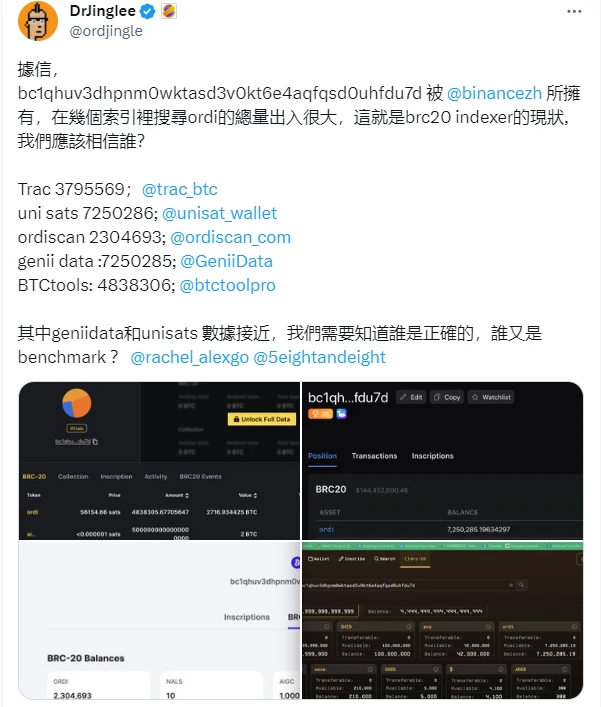
As the community says, Everyone can do indexing as long as they have the technology. However, data differences in indexing due to different statistical methods may lead to a split in consensus. As for how to solve this problem, the founder of the Ordinals protocol also proposed his own plan, which is to upgrade each trading market to the Ordinals v 0.9.0 version, standardize the BRC-20 index, and ensure consistency to prevent the occurrence of inscription numbers in previous versions. offset situation.
However, most of the time, the inscription indexes of other chains are still in a first come, first served state for developers, kidnapping of consensus also occurs from time to time, and the war between indexers has never stopped. How to achieve the largest consensus while ensuring the decentralization of the indexer? Various issues related to this are still worthy of our continued consideration.










